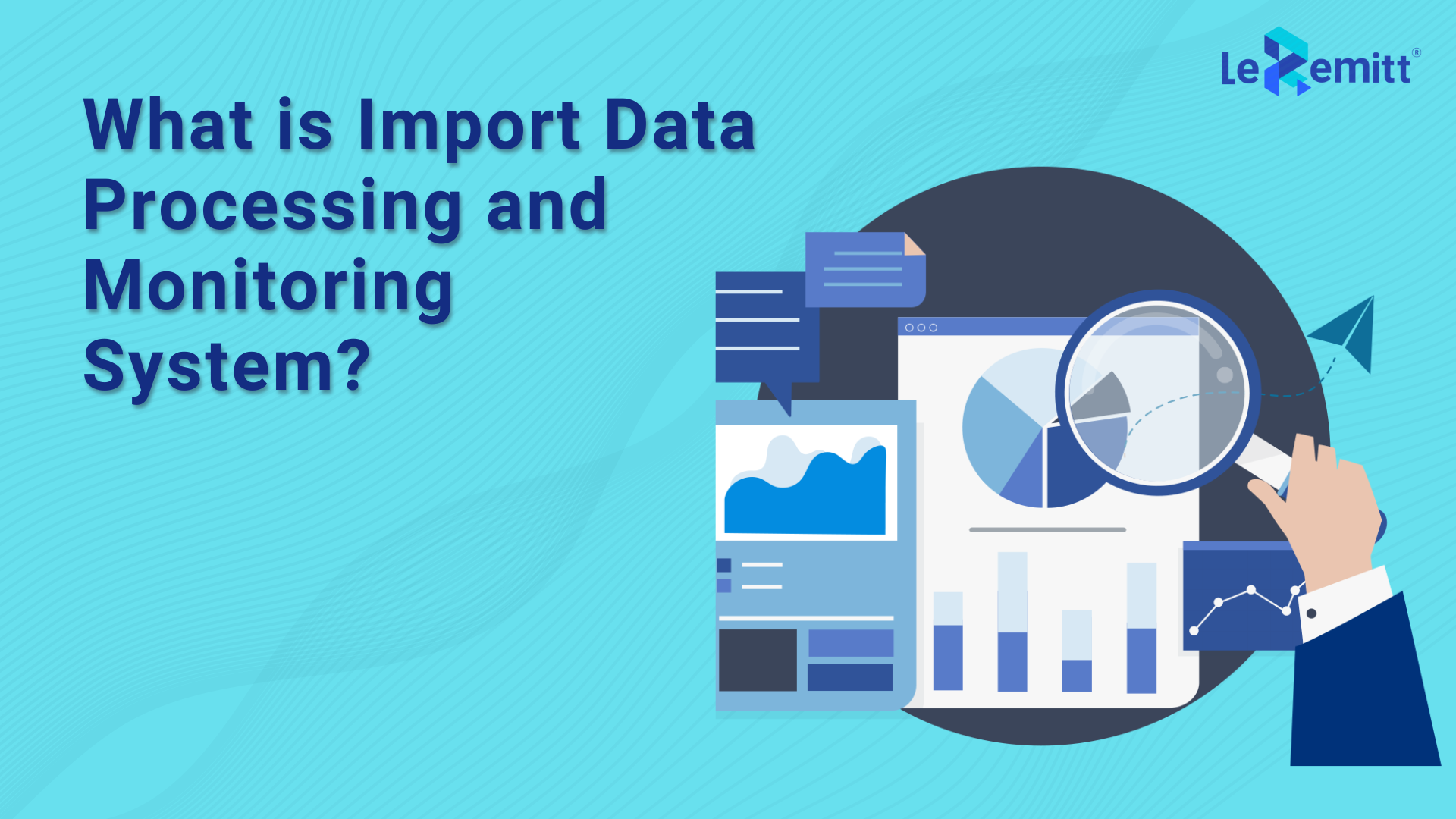What is the role of IDPMS in the export business?
You would have heard the term “I am in the import-export business” when you ask someone what they are doing. When you hear this, the question comes to mind: Are they in the export or import business? The answer, in some cases, is that they are in both.
Now that we have gotten that out of the way, let’s look at what IDPMS, or Import Data Processing and Monitoring System, means.
IDPMS (Import Data Processing and Monitoring System) plays a role in import trade similar to the one EDPMS plays for export trade. The Reserve Bank of India (RBI) uses IDPMS to track and monitor import-related payments made by Indian importers. There are certain formalities you cannot skip, like the IEC registration process, when you are in a business that deals with international entities. RBI leverages the IDPMS (Import Data Processing and Monitoring System) to ensure that importers' foreign exchange remittances are settled properly and that imported goods are received as they should be.
Here is how IDPMS works:
1. Indian importers order goods from suppliers abroad and make the payment as per due process
2. Authorized Dealer (AD) banks report the import transactions using the IDPMS system to enable tracking
3. The system then tracks to see if the goods, as per the records, have been received by the importer within the correct period
4. When importers do not provide the documents supporting the receipt of goods, IDPMS (Import Data Processing and Monitoring System) flags the transaction for further investigation. In case there is any miss in this regard, the importer may face some penalties or further action against them
Since the import trade is connected to the flow of foreign exchange out of the country’s coffers to another country, the IDPMS (Import Data Processing and Monitoring System) plays a significant role in helping the RBI track the outgoings to ensure no misuse occurs.

Why do exporters need to be aware of IDPMS?
Often, when an exporter strikes a deal to sell a particular product abroad, they may need to import some of the raw materials to meet the seller's quality requirements. As an exporter, you may receive significant benefits from the government, like attractive loans, subsidized rent for business premises, and more.
You must keep your records immaculate in every aspect, including the imports you undertake, to ensure you meet all the regulatory requirements.
Meeting regulatory requirements:
As an exporter, you may import raw materials or equipment to produce and supply goods of the right quality. In cases like this, the RBI needs to know the details of your business's foreign exchange payments. Any non-compliance can interrupt your business, penalties, or more.
Helping plan your payments:
Exporters often operate on the premise that they pay their suppliers from the payment they receive from their buyers. You need to create a delicate balance to ensure that your cash flow is in good shape, and IDPMS can help you with that.
Track outstanding payments:
Registering the goods you import from abroad helps you seek help if the importer delays the delivery. Banks monitor outward remittance and alert you if you have not reported receipt of goods in the IDPMS. Registering your import transactions with the IDPMS ensures that you legitimize the transaction and helps you seek support as required.
Improved finance options:
As an exporter, your past payment and collections record and your efficiency in managing finances impact the kind of trade finance options you can get. When you can provide evidence of your financial prowess with the help of proper documentation, you can access finance options with attractive rates. Whether it is bill discounting or any other option using your export invoices, you must ensure compliance.
Creating an import-export balance:
When you import raw materials or machinery for your export business, there’s an inflow and outflow of funds. IDPMS helps ensure that there’s a balance in both so that it is easier to manage foreign exchange requirements and ensure that the overall economy remains healthy.
Avoid penalties:
Not complying with IDPMS guidelines can result in issues like penalties, delays, or complications with your overall business. By following the guidelines, you, as an exporter, can ensure that your overall business runs smoothly.
As an exporter, you need to know the importance of IDPMS (Import Data Processing and Monitoring System) in your business. Besides that, you also need the support of an intelligent platform like LeRemitt to support your inward remittance process. Want to know how our team will help you throughout the process? Click here to connect with us and learn more!